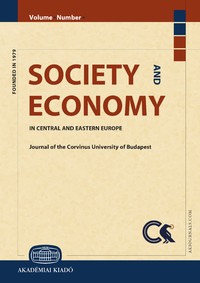Labour productivity, wages and the functional distribution of income in Portugal: A sectoral approach
Labour productivity, wages and the functional distribution of income in Portugal: A sectoral approach
Author(s): João Carlos Lopes, José Carlos Coelho, Vitor EscáriaSubject(s): Political economy, Human Resources in Economy
Published by: Akadémiai Kiadó
Keywords: functional income distribution; labour share; sectoral analysis; shift-share analysis; wage inequalities; Portugal
Summary/Abstract: The main purpose of this paper is to study the functional distribution of income in Portugal in the long run, considering the period between 1953 and 2017. The labour share in income or value added depends on two fundamental variables, labour productivity and the average labour compensation. The trends of these variables are quantified for the aggregate economy and for its main productive sectors. An interesting result emerges, namely the different dynamics across sectors, both for the (unadjusted) wage share (considering only the wages of employees) and for the adjusted labour share (considering also as labour compensation one fraction of mixed income). Moreover, a shift-share analysis is used, in order to distinguish the importance of each sector's wage share evolution (“within” effect) and the changes in each sector's weight (structural changes, or “between” effect). Finally, a first attempt to incorporate the effect of wage inequality on the functional distribution of income is made, subtracting the labour compensation of the highest paid workers (top 10%, 5% and 1%) in order to calculate the wage share of the (so-called) "typical" workers.
Journal: Society and Economy. In Central and Eastern Europe ǀ Journal of the Corvinus University of Budapest
- Issue Year: 43/2021
- Issue No: 4
- Page Range: 331-354
- Page Count: 24
- Language: English

